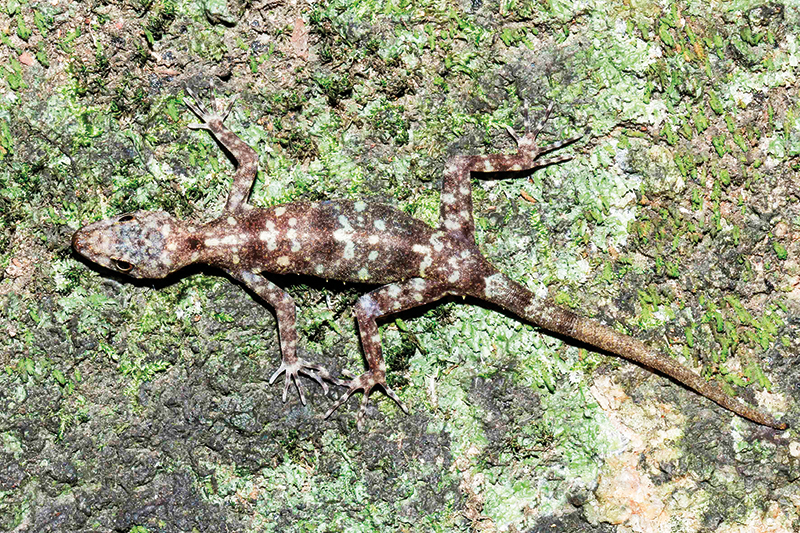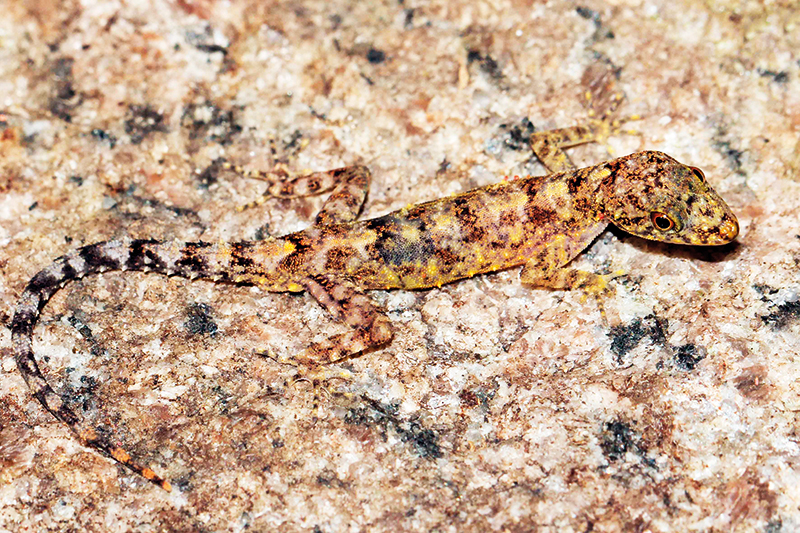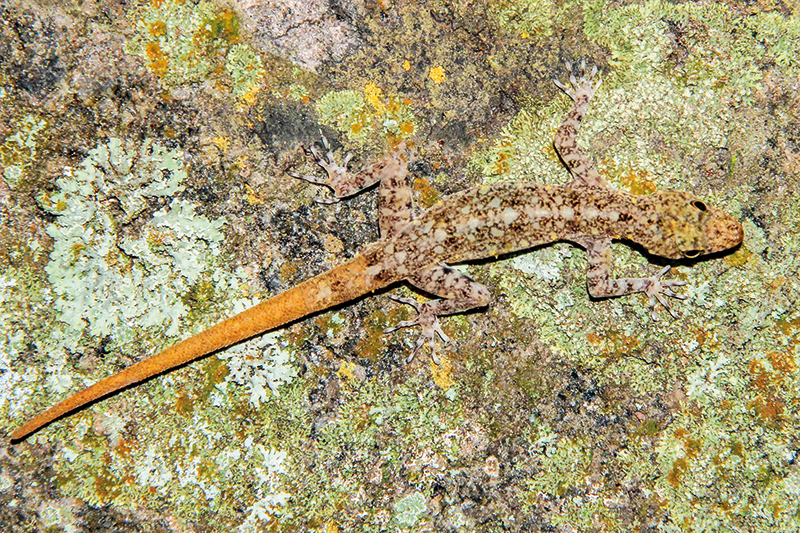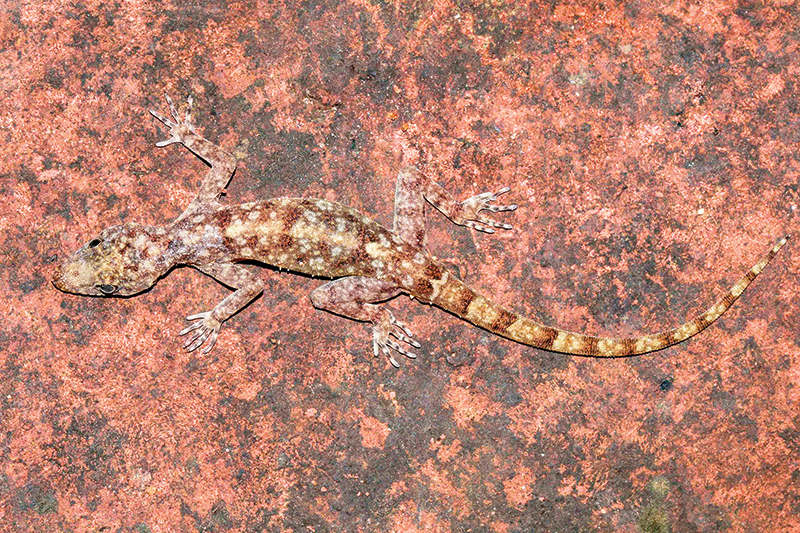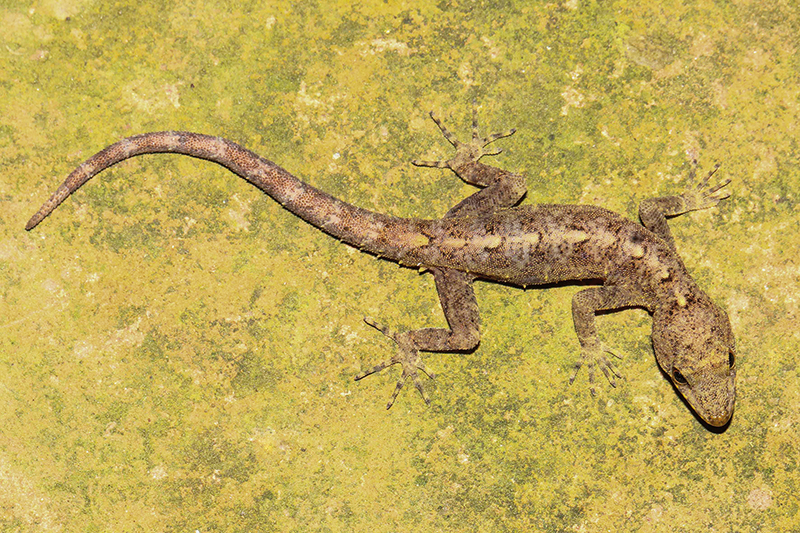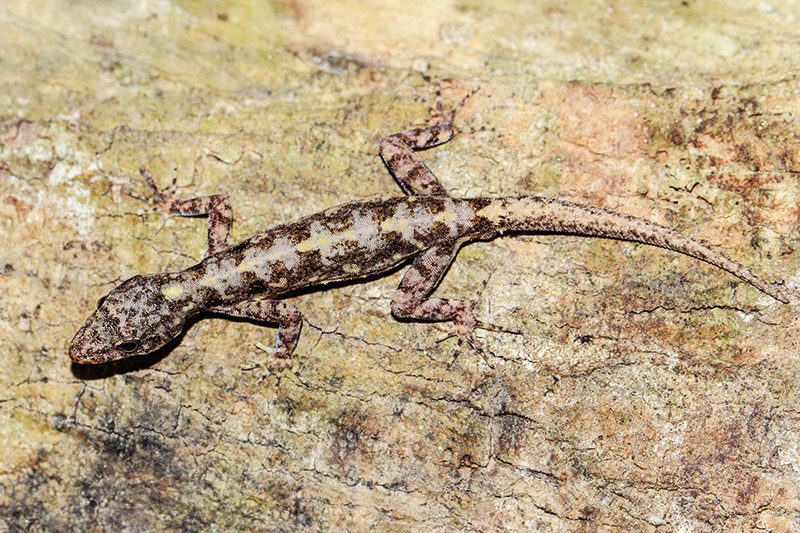Features
Visit to Brussels and quiet diplomacy with the Soviets in Colombo
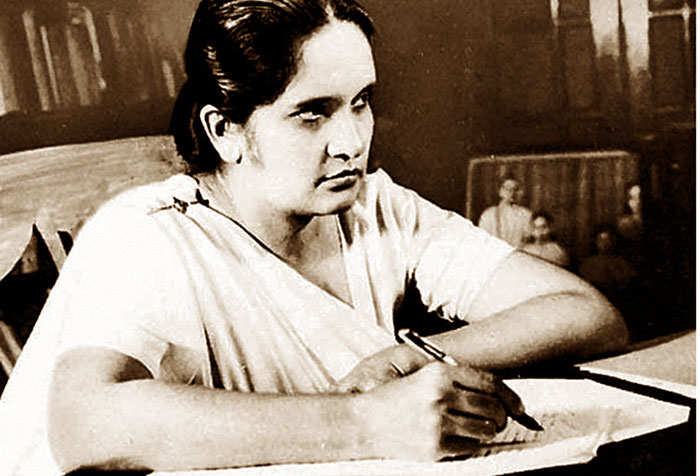
Person identified as KGB agent at embassy sent off sans publicity
(Excerpted from the autobiography of MDD Pieris, Secretary to the Prime Minister)
At the end of the (London security) course, High Commissioner Tilak Gooneratne, who had an appointment in the European Common Market in Brussels with Sir Christopher Soames, External Commissioner for the European Common Market, took me along with him. He knew Sir Christopher, who was the son-in-law of Sir Winston Churchill, quite well and was keen that I should meet him, and also see at first hand certain common market arrangements.
He telephoned the Prime Minister and obtained her permission for me to accompany him to Brussels. Generously, Tilak wanted me to have a larger experience, and therefore decided not to fly. Instead, we drove to Dover, took the channel ferry to Calais, and then drove on to Brussels. We had an interesting meeting with Sir Christopher and drove to Bonn for a late lunch, with C. Gunasingham who was acting for the Ambassador at the time. The next day, we took the ferry, this time from Ostend, and came back to Britain.
One has to be deeply grateful to people like Tilak, who always took such an interest, a great deal of trouble, and incurred personal expense in broadening the horizons of those who had to deal with him. His wife Pam, a cultured and refined lady, matched his generosity, by taking us to the theatre to see some excellent plays, whenever, we had a free evening. They were also willing hosts who opened their residence and their dining table and were genuinely happy when you came.
When I got back, I briefed the Prime Minister on the intelligence I had received, when in London. She got down WT Jayasinghe and instructed him to call the Soviet Ambassador to the Ministry and merely say that we would like the person concerned to leave the country within 10 days. He was further instructed to tell the Ambassador, if he asked for reasons, that we are in possession of information, that would make his further stay in Sri Lanka detrimental to the very good relations we enjoyed with the Soviet Union, and that it was in the interests of both countries that this whole thing was done quietly and without publicity. In the end, things were done very quietly indeed. The Soviet Ambassador, when confronted with our request, had merely stated that if this is what the Prime Minister wanted, he would comply. No reasons were asked.
Visit to the USSR
A few months after this episode, the Prime Minister had to visit the USSR. This visit was in the pipeline for sometime, and dates were finally fixed for November 1974. The Soviets sent a special four engine Turbo-prop plane to take the Prime Minister and party to the USSR and bring them back. These arrangements made it possible for a larger delegation than usual to accompany her.
The principal members of the delegation were myself, Tissa Wijeyeratne; Dr. Mackie Ratwatte; Elmo Seneviratne, Director Economic Affairs of the Foreign Ministry; Mr. A.B. Elkaduwe, Additional Secretary, Ministry of Industries and Scientific Affairs; Mr. Balasubramaniam, Director (West) of the Foreign Ministry; Mr. Austin Fernando, Director External Resources; and Mr. D.P. Amerasinghe, Additional Private Secretary to the Prime Minister. There was also an aide, Mr. M.M. Weerasena of the Prime Minister’s office and a representative of the Sri Lanka Broadcasting Corporation.
The Prime Minister’s son Anura also accompanied us and Mr. Nishanov, the Ambassador for the USSR in Sri Lanka came on the flight. We took off on November 10, 1974 and flew direct to Tashkent, a journey of some seven hours 40 minutes. We were put up for the night in a state guest house. Our bedrooms were large and the furniture heavy. My bed was very large and with an iron frame. The mattress was hard and seemed designed more to produce straight and hard backs than afford comfort.
After dinner, when I went to sleep, I found the room grossly overheated and quite uncomfortable. On investigation I found that what we had was central heating with no possibility of regulation from the room. The guest house was a sprawling complex with long corridors, and when I opened the door of my room, to see whether I could bring this problem to someone’s attention, all was silent and there was no one in sight. There was no choice but to bear the discomfort for a few hours.
It was, however, much worse than I had anticipated. Sleep was out of the question. I was bathed in sweat. The windows appeared to be sealed. I tossed and turned with abandon, and sometime during the night, there was a loud crack and the bed broke and one side slumped and sagged at an angle! The satisfaction of breaking such a massive looking bed, somewhat compensated for the lack of sleep. There was nothing left to do now, but to collect some of the bedclothes and settle down on the floor.
The next morning, at breakfast I proudly announced my feat of the previous night to a gathering which included the Prime Minister and the Soviet Ambassador. Everyone was quite amused except the Ambassador, who looked embarrassed. It appeared that all had suffered from the problem of over heated rooms during the night. Only I had the distinction of breaking the bed as a response.
After breakfast, we re-joined the flight and set out for Moscow. It took five and a half hours. As we got down in Moscow, it was bitterly cold. The wind cut through, what now appeared to be our inadequate protection, except for the Prime Minister and one or two others, who seemed to be more prepared. We were met at the airport by Prime Minister Kosygin, Foreign Minister Andrei Gromyko and other Soviet dignitaries, and after the playing of National Anthems, were witnesses to a march past of smart goose-stepping troops.
We were housed in a large dacha, set in extensive wooded grounds. The rooms were once again large, but to our relief the heating system was much better. If at all, it was a little more on the cold side. Our hosts were very thoughtful and most of us were presented with heavy overcoats which were a great help. It was doubtful whether such heavy coats could have been obtained in many countries and certainly not in Sri Lanka. Wearing one of them and walking about provided protection and exercise at the same time.
From the time we settled in, there was work to do. We had a draft communique almost ready, to which we had to add a few finishing touches, and we knew the Soviets had one too. They fixed the unusual hour of 10.15 in the night, to start joint discussions on the communiques. Tissa, with his Communist Party training explained that this was not unusual at all. He said that these were all tactics to wear down the other side and get what they want. Once we knew this, it was possible to steel one’s mind and to evoke the mental strength and stamina that were necessary.
We met in the Soviet Foreign Ministry at 10 p.m. In addition to myself, our side included our Ambassador Dr. Soma Weeratunge; Tissa Wijeratne; Dr. Wiswa Warnapala, from the University of Peradeniya, who was on a few years attachment to our Embassy in a senior diplomatic position; and Mr. Balasubramaniam of the Foreign Ministry. First, there was the haggling about which draft to be used. Eventually, we agreed to use the Soviet draft as a basis, subject to discussions on the wording.
Here, it was our intention to bring in the wording from our draft, or wording as approximate as possible, into the main communique. This was not easy. The Soviets were attempting to get us to subscribe to at the time, their relatively new concept of Asian Collective Security, which was going to be under their auspices. We were on the other hand a country active in the Non-aligned Movement, and with an influence in the movement which was disproportionate to our size or population. We also had very good relations with the West. We were not willing to come under the tutelage of any power bloc.
The discussion dragged on till 1.15 a.m. and ended inconclusively on several important points. It was decided to meet again later in the day, the new day already having dawned.
Later, we had formal talks in the Kremlin with Prime Minister Kosygin and his team, which included Foreign Minister Gromyko and other important Ministers. This meeting followed a lunch hosted by the Soviet Prime Minister. During the official discussions, Mrs. Bandaranaike bargained closely on many issues pertaining to Soviet aid to Sri Lanka. She wanted to get the best terms and the best deal possible. At one stage, Mr. Kosygin banteringly wagged a finger and said, “you are a hard lady.” Mrs. Bandaranaike replied that if she was hard, it was on behalf of her country.
The discussions were cordial, and we were able to obtain assistance for the public industrial sector, as well as a commitment to preliminary studies relating to the Samanalawewa Hydro Electric Scheme. The meeting ended during the late afternoon. During the early evening the Soviet Prime Minister was taking the Prime Minister to the Bolshoi Ballet. The Ambassador, Mackie and I were also invited. But there was no question of my going. We had work to do on the communique with the Soviet side.
I told Tissa to lead the discussions. With his old Communist background, during which he had also had a stint of training in the Soviet Union, he was quite proficient on their negotiating techniques and general strategy. This also gave me the time to think, whilst Tissa talked. The meeting kept dragging on. The Soviets were defending every word of their draft as if their life depended on it. Perhaps, their careers did. We for our part were not prepared to alter our foreign policy to suit anybody. We had discussed matters with the Prime Minister after our first meeting, and we knew we had her full backing on the Issues we considered important for us.
Once the other side realized that we were unlikely to yield on some matters, and that we were in no hurry to reach agreement, although according to the programme we had to leave for Tibilisi-Georgia the following afternoon, after a luncheon signing of some agreements by the Prime Ministers, and the release of the communique, they became more accommodating. Some progress was made. There were still a very few important matters about which we were deadlocked.
At this stage, the Russians called to their aid Deputy Foreign Minister, Firyubin. He strode into the room complaining that he had been disturbed at the ballet and that this was the first time in his career that he had to be dragged out from the ballet for a matter such as this. Tissa Wijeratne, sweetly replied “Excellency, you can see the ballet tomorrow. But we are leaving tomorrow and we will never be able to see it.” The Deputy Foreign Minister grunted testily.
“What is all this?” he inquired. We politely told him. He realized that we meant business, and that we were not ready to agree on a communique at any cost. Things proceeded better thereafter, and we were eventually able to agree. By this time, it was very late, and the Prime Minister who had returned from the ballet had been wondering what had happened to us. She sent a message that she was waiting for us to return in order to have dinner. This also would have helped to expedite matters with the Russians.
When we got back finally at about 10 p.m.. the Prime Minister was pleased that we had successfully defended our positions. The discussions had gone on for some six hours, and this with very little translations required, because most of the discussions were conducted in English. We worked as a team and enjoyed working together. The Prime Minister fostered this team spirit. She was, though the leader and at a much higher level, very much a part of the team. Her refusal to have dinner without us underlined this, and proved to be a great boost to us.
There was an interesting sequel to our prolonged discussions. That night I was fast asleep, quite fatigued, well tucked under the blankets against the cold, when as if in a dream I heard the distant sound of knocking on what appeared to be my door. Soon, the knocking became quite loud, and I realized that it was indeed my door someone was knocking on. Put up suddenly from a deep and tired sleep, I took some time to get out of bed and reach the door. I was half shivering having suddenly emerged from under cosy blankets. The knocking continued.
When I finally opened the door there was a young man from the Soviet Foreign Ministry sporting a broad grin and with a sheaf of papers in his hand, which he thrust into mine saying that this was the final version of the communique and would I check it, because they had to finalize everything by 7 a.m. and have it ready for signing at lunch. By this time, I was wide awake, and suspected that this was a piece of harassment aimed to teach us a lesson for being stubborn in the negotiations.
I now wide awake therefore said, “Come in. Come in, let’s order some coffee and go through this together.” There was near panic in his face. His job seemed to be to disturb my sleep and get away. He said “No”, he had to report back to the Foreign Ministry. I said, I will telephone the Ministry and say, that in view of the obvious urgency that I want to go through the communique right now and hand it over to their official. But he mumbled some excuses, and virtually fled.
Now that I was up and alert, I thought I would go through the draft straightaway. The time was 4.30 a.m, and that’s what I did. There were just a couple of matters I wanted to clarify with the Ambassador, Tissa and Professor Wiswa Warnapala in the morning. But substantially, almost everything was in order. The next morning Tissa, said that my nights disturbance was typical Soviet tactics, and that he was not at all surprised. If they really were tactics, I fail to understand what they sought to gain by them. Certainly, it could not have been goodwill.
This whole episode, including the long drawn out negotiations on the joint communique appeared to me to illustrate the rigidity and the almost surreal nature of the system. Much time and effort were spent on relatively minor issues and any kind of compromise was hard to achieve. One felt that preoccupation with sheer process had taken a life of its own, and that the end result, which should have included the creation of respect and goodwill was lost to them.
Most of the matters addressed in the communique should not have been those which should have kept a Foreign Ministry’s chandeliers burning all night. One really wondered how a great country like the Soviet Union could function in this way. In fact, the contrast between the Soviet Union and the West was brought out subsequently when the Prime Minister visited West Germany on a State visit. I did not go on this visit. But colleagues who did told me that the two sides exchanged their drafts of the communique at the airport on arrival, and subsequently at an informal twenty minute discussion, everything was finalized! These experiences were clearly illustrative of two very different systems, one, process oriented, cumbrous and bureaucratic, and the other pragmatic, practical and expeditious.
Features
Making ‘Sinhala Studies’ globally relevant

 On 8 January 2026, I delivered a talk at an event at the University of Colombo marking the retirement of my longtime friend and former Professor of Sinhala, Ananda Tissa Kumara and his appointment as Emeritus Professor of Sinhala in that university. What I said has much to do with decolonising social sciences and humanities and the contributions countries like ours can make to the global discourses of knowledge in these broad disciplines. I have previously discussed these issues in this column, including in my essay, ‘Does Sri Lanka Contribute to the Global Intellectual Expansion of Social Sciences and Humanities?’ published on 29 October 2025 and ‘Can Asians Think? Towards Decolonising Social Sciences and Humanities’ published on 31 December 2025.
On 8 January 2026, I delivered a talk at an event at the University of Colombo marking the retirement of my longtime friend and former Professor of Sinhala, Ananda Tissa Kumara and his appointment as Emeritus Professor of Sinhala in that university. What I said has much to do with decolonising social sciences and humanities and the contributions countries like ours can make to the global discourses of knowledge in these broad disciplines. I have previously discussed these issues in this column, including in my essay, ‘Does Sri Lanka Contribute to the Global Intellectual Expansion of Social Sciences and Humanities?’ published on 29 October 2025 and ‘Can Asians Think? Towards Decolonising Social Sciences and Humanities’ published on 31 December 2025.
At the recent talk, I posed a question that relates directly to what I have raised earlier but drew from a specific type of knowledge scholars like Prof Ananda Tissa Kumara have produced over a lifetime about our cultural worlds. I do not refer to their published work on Sinhala, Pali and Sanskrit languages, their histories or grammars; instead, their writing on various aspects of Sinhala culture. Erudite scholars familiar with Tamil sources have written extensively on Tamil culture in this same manner, which I will not refer to here.
To elaborate, let me refer to a several essays written by Professor Tissa Kumara over the years in the Sinhala language: 1) Aspects of Sri Lankan town planning emerging from Sinhala Sandesha poetry; 2) Health practices emerging from inscriptions of the latter part of the Anuradhapura period; 3) Buddhist religious background described in inscriptions of the Kandyan period; 4) Notions of aesthetic appreciation emerging from Sigiri poetry; 5) Rituals related to Sinhala clinical procedures; 6) Customs linked to marriage taboos in Sinhala society; 7) Food habits of ancient and medieval Lankans; and 8) The decline of modern Buddhist education. All these essays by Prof. Tissa Kumara and many others like them written by others remain untranslated into English or any other global language that holds intellectual power. The only exceptions would be the handful of scholars who also wrote in English or some of their works happened to be translated into English, an example of the latter being Prof. M.B. Ariyapala’s classic, Society in Medieval Ceylon.
The question I raised during my lecture was, what does one do with this knowledge and whether it is not possible to use this kind of knowledge profitably for theory building, conceptual and methodological fine-tuning and other such essential work mostly in the domain of abstract thinking that is crucially needed for social sciences and humanities. But this is not an interest these scholars ever entertained. Except for those who wrote fictionalised accounts such as unsubstantiated stories on mythological characters like Rawana, many of these scholars amassed detailed information along with their sources. This focus on sources is evident even in the titles of many of Prof. Tissa Kumara’s work referred to earlier. Rather than focusing on theorising or theory-based interpretations, these scholars’ aim was to collect and present socio-cultural material that is inaccessible to most others in society including people like myself. Either we know very little of such material or are completely unaware of their existence. But they are important sources of our collective history indicating what we are where we have come from and need to be seen as a specific genre of research.
In this sense, people like Prof. Tissa Kumara and his predecessors are human encyclopedias. But the knowledge they produced, when situated in the context of global knowledge production in general, remains mostly as ‘raw’ information albeit crucial. The pertinent question now is what do we do with this information? They can, of course, remain as it is. My argument however is this knowledge can be a serious source for theory-building and constructing philosophy based on a deeper understanding of the histories of our country and of the region and how people in these areas have dealt with the world over time.
Most scholars in our country and elsewhere in the region believe that the theoretical and conceptual apparatuses needed for our thinking – clearly manifest in social sciences and humanities – must necessarily be imported from the ‘west.’ It is this backward assumption, but specifically in reference to Indian experiences on social theory, that Prathama Banerjee and her colleagues observe in the following words: “theory appears as a ready-made body of philosophical thought, produced in the West …” As they further note, in this situation, “the more theory-inclined among us simply pick the latest theory off-the-shelf and ‘apply’ it to our context” disregarding its provincial European or North American origin, because of the false belief “that “‘theory’ is by definition universal.” What this means is that like in India, in countries like ours too, the “relationship to theory is dependent, derivative, and often deeply alienated.”
In a somewhat similar critique in his 2000 book, Provincialising Europe: Postcolonial Thought and Historical Difference Dipesh Chakrabarty points to the limitations of Western social sciences in explaining the historical experiences of political modernity in South Asia. He attempted to renew Western and particularly European thought “from and for the margins,” and bring in diverse histories from regions that were marginalised in global knowledge production into the mainstream discourse of knowledge. In effect, this means making histories of countries like ours relevant in knowledge production.
The erroneous and blind faith in the universality of theory is evident in our country too whether it is the unquestioned embrace of modernist theories and philosophies or their postmodern versions. The heroes in this situation generally remain old white men from Marx to Foucault and many in between. This indicates the kind of unhealthy dependence local discourses of theory owe to the ‘west’ without any attempt towards generating serious thinking on our own.
In his 2002 essay, ‘Dismal State of Social Sciences in Pakistan,’ Akbar Zaidi points out how Pakistani social scientists blindly apply imported “theoretical arguments and constructs to Pakistani conditions without questioning, debating or commenting on the theory itself.” Similarly, as I noted in my 2017 essay, ‘Reclaiming Social Sciences and Humanities: Notes from South Asia,’ Sri Lankan social sciences and humanities have “not seriously engaged in recent times with the dominant theoretical constructs that currently hold sway in the more academically dominant parts of the world.” Our scholars also have not offered any serious alternate constructions of their own to the world without going crudely nativistic or exclusivist.
This situation brings me back to the kind of knowledge that scholars like Prof. Tissa Kumara have produced. Philosophy, theory or concepts generally emerge from specific historical and temporal conditions. Therefore, they are difficult to universalise or generalise without serious consequences. This does not mean that some ideas would not have universal applicability with or without minor fine tuning. In general, however, such bodies of abstract knowledge should ideally be constructed with reference to the histories and contemporary socio-political circumstances
from where they emerge that may have applicability to other places with similar histories. This is what Banerjee and her colleagues proposed in their 2016 essay, ‘The Work of Theory: Thinking Across Traditions’. This is also what decolonial theorists such as Walter Mignolo, Enrique Dussel and Aníbal Quijano have referred to as ‘decolonizing Western epistemology’ and ‘building decolonial epistemologies.’
My sense is, scholars like Prof. Tissa Kumara have amassed at least some part of such knowledge that can be used for theory-building that has so far not been used for this purpose. Let me refer to two specific examples that have local relevance which will place my argument in context. Historian and political scientist Benedict Anderson argued in his influential 1983 book, Imagined Communities: Reflections on the Origin and Spread of Nationalism that notions of nationalism led to the creation of nations or, as he calls them, ‘imagined communities.’ For him, unlike many others, European nation states emerged in response to the rise of ‘nationalism’ in the overseas European settlements, especially in the Western Hemisphere. But it was still a form of thinking that had Europe at its center.
Comparatively, we can consider Stephen Kemper’s 1991 book, The Presence of the Past: Chronicles, Politics, and Culture in Sinhala Life where the American anthropologist explored the ways in which Sinhala ‘national’ identity evolved over time along with a continual historical consciousness because of the existence of texts such as Mahawamsa. In other words, the Sinhala past manifests with social practices that have continued from the ancient past among which are chronicle-keeping, maintaining sacred places, and venerating heroes.
In this context, his argument is that Sinhala nationalism predates the rise of nationalist movements in Europe by over a thousand years, thereby challenging the hegemonic arguments such as those of Anderson, Ernest Gellner, Elie Kedourie and others who link nationalism as a modern phenomenon impacted by Europe in some way or another. Kemper was able to come to his interpretation by closely reading Lankan texts such as Mahawamsa and other Pali chronicles and more critically, theorizing what is in these texts. Such interpretable material is what has been presented by Prof. Tissa Kumara and others, sans the sing.
Similarly, local texts in Sinhala such as kadaim poth’ and vitti poth, which are basically narratives of local boundaries and descriptions of specific events written in the Dambadeniya and Kandyan periods are replete with crucial information. This includes local village and district boundaries, the different ethno-cultural groups that lived in and came to settle in specific places in these kingdoms, migratory events, wars and so on. These texts as well as European diplomatic dispatches and political reports from these times, particularly during the Kandyan period, refer to the cosmopolitanism in the Kandyan kingdom particularly its court, the military, town planning and more importantly the religious tolerance which even surprised the European observers and latter-day colonial rulers. Again, much of this comes from local sources or much less focused upon European dispatches of the time.
Scholars like Prof. Tissa Kumara have collected this kind of information as well as material from much older times and sources. What would the conceptual categories, such as ethnicity, nationalism, cosmopolitanism be like if they are reinterpreted or cast anew through these histories, rather than merely following their European and North American intellectual and historical slants which is the case at present? Among the questions we can ask are, whether these local idiosyncrasies resulted from Buddhism or local cultural practices we may not know much about at present but may exist in inscriptions, in ola leaf manuscripts or in other materials collected and presented by scholars such as Prof. Tissa Kumara.
For me, familiarizing ourselves with this under- and unused archive and employing them for theory-building as well as for fine-tuning what already exists is the main intellectual role we can play in taking our cultural knowledge to the world in a way that might make sense beyond the linguistic and socio-political borders of our country. Whether our universities and scholars are ready to attempt this without falling into the trap of crude nativisms, be satisfied with what has already been collected, but is untheorized or if they would rather lackadaisically remain shackled to ‘western’ epistemologies in the sense articulated by decolonial theorists remains to be seen.
Features
Extinction in isolation: Sri Lanka’s lizards at the climate crossroads

Climate change is no longer a distant or abstract threat to Sri Lanka’s biodiversity. It is already driving local extinctions — particularly among lizards trapped in geographically isolated habitats, where even small increases in temperature can mean the difference between survival and disappearance.
According to research by Buddhi Dayananda, Thilina Surasinghe and Suranjan Karunarathna, Sri Lanka’s narrowly distributed lizards are among the most vulnerable vertebrates in the country, with climate stress intensifying the impacts of habitat loss, fragmentation and naturally small population sizes.
Isolation Turns Warming into an Extinction Trap
Sri Lanka’s rugged topography and long geological isolation have produced extraordinary levels of reptile endemism. Many lizard species are confined to single mountains, forest patches or rock outcrops, existing nowhere else on Earth. While this isolation has driven evolution, it has also created conditions where climate change can rapidly trigger extinction.
“Lizards are especially sensitive to environmental temperature because their metabolism, activity patterns and reproduction depend directly on external conditions,” explains Suranjan Karunarathna, a leading herpetologist and co-author of the study. “When climatic thresholds are exceeded, geographically isolated species cannot shift their ranges. They are effectively trapped.”
The study highlights global projections indicating that nearly 40 percent of local lizard populations could disappear in coming decades, while up to one-fifth of all lizard species worldwide may face extinction by 2080 if current warming trends persist.
- Cnemaspis_gunawardanai (Adult Female), Pilikuttuwa, Gampaha District
- Cnemaspis_ingerorum (Adult Male), Sithulpauwa, Hambantota District
- Cnemaspis_hitihamii (Adult Female), Maragala, Monaragala District
- Cnemaspis_gunasekarai (Adult Male), Ritigala, Anuradapura District
- Cnemaspis_dissanayakai (Adult Male), Dimbulagala, Polonnaruwa District
- Cnemaspis_kandambyi (Adult Male), Meemure, Matale District
Heat Stress, Energy Loss and Reproductive Failure
Rising temperatures force lizards to spend more time in shelters to avoid lethal heat, reducing their foraging time and energy intake. Over time, this leads to chronic energy deficits that undermine growth and reproduction.
“When lizards forage less, they have less energy for breeding,” Karunarathna says. “This doesn’t always cause immediate mortality, but it slowly erodes populations.”
Repeated exposure to sub-lethal warming has been shown to increase embryonic mortality, reduce hatchling size, slow post-hatch growth and compromise body condition. In species with temperature-dependent sex determination, warming can skew sex ratios, threatening long-term population viability.
“These impacts often remain invisible until populations suddenly collapse,” Karunarathna warns.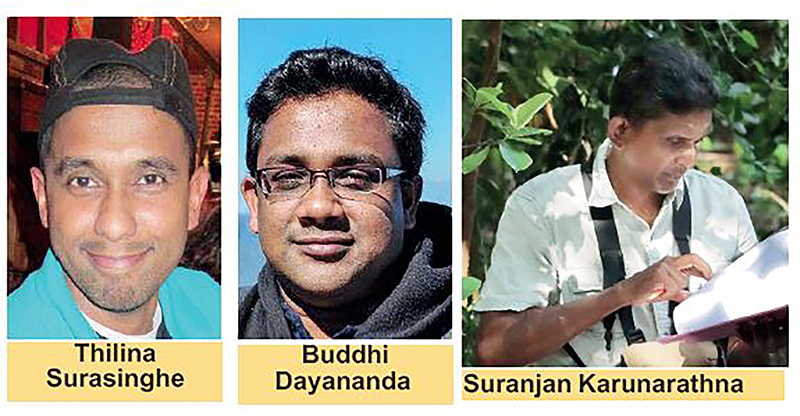
Tropical Species with No Thermal Buffer
The research highlights that tropical lizards such as those in Sri Lanka are particularly vulnerable because they already live close to their physiological thermal limits. Unlike temperate species, they experience little seasonal temperature variation and therefore possess limited behavioural or evolutionary flexibility to cope with rapid warming.
“Even modest temperature increases can have severe consequences in tropical systems,” Karunarathna explains. “There is very little room for error.”
Climate change also alters habitat structure. Canopy thinning, tree mortality and changes in vegetation density increase ground-level temperatures and reduce the availability of shaded refuges, further exposing lizards to heat stress.
Narrow Ranges, Small Populations
Many Sri Lankan lizards exist as small, isolated populations restricted to narrow altitudinal bands or specific microhabitats. Once these habitats are degraded — through land-use change, quarrying, infrastructure development or climate-driven vegetation loss — entire global populations can vanish.
“Species confined to isolated hills and rock outcrops are especially at risk,” Karunarathna says. “Surrounding human-modified landscapes prevent movement to cooler or more suitable areas.”
Even protected areas offer no guarantee of survival if species occupy only small pockets within reserves. Localised disturbances or microclimatic changes can still result in extinction.
Climate Change Amplifies Human Pressures
The study emphasises that climate change will intensify existing human-driven threats, including habitat fragmentation, land-use change and environmental degradation. Together, these pressures create extinction cascades that disproportionately affect narrowly distributed species.
“Climate change acts as a force multiplier,” Karunarathna explains. “It worsens the impacts of every other threat lizards already face.”
Without targeted conservation action, many species may disappear before they are formally assessed or fully understood.
Science Must Shape Conservation Policy
Researchers stress the urgent need for conservation strategies that recognise micro-endemism and climate vulnerability. They call for stronger environmental impact assessments, climate-informed land-use planning and long-term monitoring of isolated populations.
“We cannot rely on broad conservation measures alone,” Karunarathna says. “Species that exist in a single location require site-specific protection.”
The researchers also highlight the importance of continued taxonomic and ecological research, warning that extinction may outpace scientific discovery.
A Vanishing Evolutionary Legacy
Sri Lanka’s lizards are not merely small reptiles hidden from view; they represent millions of years of unique evolutionary history. Their loss would be irreversible.
“Once these species disappear, they are gone forever,” Karunarathna says. “Climate change is moving faster than our conservation response, and isolation means there are no second chances.”
By Ifham Nizam ✍️
Features
Online work compatibility of education tablets

Enabling Education-to-Income Pathways through Dual-Use Devices
The deployment of tablets and Chromebook-based devices for emergency education following Cyclone Ditwah presents an opportunity that extends beyond short-term academic continuity. International experience demonstrates that the same category of devices—when properly governed and configured—can support safe, ethical, and productive online work, particularly for youth and displaced populations. This annex outlines the types of online jobs compatible with such devices, their technical limitations, and their strategic national value within Sri Lanka’s recovery and human capital development agenda.
Compatible Categories of Online Work
At the foundational level, entry-level digital jobs are widely accessible through Android tablets and Chromebook devices. These roles typically require basic digital literacy, language comprehension, and sustained attention rather than advanced computing power. Common examples include data tagging and data validation tasks, AI training activities such as text, image, or voice labelling, online surveys and structured research tasks, digital form filling, and basic transcription work. These activities are routinely hosted on Google task-based platforms, global AI crowdsourcing systems, and micro-task portals operated by international NGOs and UN agencies. Such models have been extensively utilised in countries including India, the Philippines, Kenya, and Nepal, particularly in post-disaster and low-income contexts.
At an intermediate level, freelance and gig-based work becomes viable, especially when Chromebook tablets such as the Lenovo Chromebook Duet or Acer Chromebook Tab are used with detachable keyboards. These devices are well suited for content writing and editing, Sinhala–Tamil–English translation work, social media management, Canva-based design assignments, and virtual assistant roles. Chromebooks excel in this domain because they provide full browser functionality, seamless integration with Google Docs and Sheets (including offline drafting and later (synchronization), reliable file upload capabilities, and stable video conferencing through platforms such as Google Meet or Zoom. Freelancers across Southeast Asia and Africa already rely heavily on Chromebook-class devices for such work, demonstrating their suitability in bandwidth- and power-constrained environments.
A third category involves remote employment and structured part-time work, which is also feasible on Chromebook tablets when paired with a keyboard and headset. These roles include online tutoring support, customer service through chat or email, research assistance, and entry-level digital bookkeeping. While such work requires a more consistent internet connection—often achievable through mobile hotspots—it does not demand high-end hardware. The combination of portability, long battery life, and browser-based platforms makes these devices adequate for such employment models.
Functional Capabilities and Limitations
It is important to clearly distinguish what these devices can and cannot reasonably support. Tablets and Chromebooks are highly effective for web-based jobs, Google Workspace-driven tasks, cloud platforms, online interviews conducted via Zoom or Google Meet, and the use of digital wallets and electronic payment systems. However, they are not designed for heavy video editing, advanced software development environments, or professional engineering and design tools such as AutoCAD. This limitation does not materially reduce their relevance, as global labour market data indicate that approximately 70–75 per cent of online work worldwide is browser-based and fully compatible with tablet-class devices.
Device Suitability for Dual Use
Among commonly deployed devices, the Chromebook Duet and Acer Chromebook Tab offer the strongest balance between learning and online work, making them the most effective all-round options. Android tablets such as the Samsung Galaxy Tab A8 or A9 and the Nokia T20 also perform reliably when supplemented with keyboards, with the latter offering particularly strong battery endurance. Budget-oriented devices such as the Xiaomi Redmi Pad remain suitable for learning and basic work tasks, though with some limitations in sustained productivity. Across all device types, battery efficiency remains a decisive advantage.
Power and Energy Considerations
In disaster-affected and power-scarce environments, tablets outperform conventional laptops. A battery life of 10–12 hours effectively supports a full day of online work or study. Offline drafting of documents with later synchronisation further reduces dependence on continuous connectivity. The use of solar chargers and power banks can extend operational capacity significantly, making these devices particularly suitable for temporary shelters and community learning hubs.
Payment and Income Feasibility in the Sri Lankan Context
From a financial inclusion perspective, these devices are fully compatible with commonly used payment systems. Platforms such as PayPal (within existing national constraints), Payoneer, Wise, LankaQR, local banking applications, and NGO stipend mechanisms are all accessible through Android and ChromeOS environments. Notably, many Sri Lankan freelancers already conduct income-generating activities entirely via mobile devices, confirming the practical feasibility of tablet-based earning.
Strategic National Value
The dual use of tablets for both education and income generation carries significant strategic value for Sri Lanka. It helps prevent long-term dependency by enabling families to rebuild livelihoods, creates structured earning pathways for youth, and transforms disaster relief interventions into resilience-building investments. This approach supports a human resource management–driven recovery model rather than a welfare-dependent one. It aligns directly with the outcomes sought by the Ministry of Education, the Ministry of Labour and HRM reform initiatives, and broader national productivity and competitiveness goals.
Policy Positioning under the Vivonta / PPA Framework
Within the Vivonta/Proprietary Planters Alliance national response framework, it is recommended that these devices be formally positioned as “Learning + Livelihood Tablets.” This designation reflects their dual public value and supports a structured governance approach. Devices should be configured with dual profiles—Student and Worker—supplemented by basic digital job readiness modules, clear ethical guidance on online work, and safeguards against exploitation, particularly for vulnerable populations.
Performance Indicators
From a monitoring perspective, the expected reach of such an intervention is high, encompassing students, youth, and displaced adults. The anticipated impact is very high, as it directly enables the transition from education to income generation. Confidence in the approach is high due to extensive global precedent, while the required effort remains moderate, centering primarily on training, coordination, and platform curation rather than capital-intensive investment.
We respectfully invite the Open University of Sri Lanka, Derana, Sirasa, Rupavahini, DP Education, and Janith Wickramasinghe, National Online Job Coach, to join hands under a single national banner—
“Lighting the Dreams of Sri Lanka’s Emerging Leaders.”
by Lalin I De Silva, FIPM (SL) ✍️
-

 Business3 days ago
Business3 days agoKoaloo.Fi and Stredge forge strategic partnership to offer businesses sustainable supply chain solutions
-

 Business7 days ago
Business7 days agoDialog and UnionPay International Join Forces to Elevate Sri Lanka’s Digital Payment Landscape
-

 News16 hours ago
News16 hours agoUNDP’s assessment confirms widespread economic fallout from Cyclone Ditwah
-

 Editorial2 days ago
Editorial2 days agoThe Chakka Clash
-

 News7 days ago
News7 days agoSajith: Ashoka Chakra replaces Dharmachakra in Buddhism textbook
-

 Editorial16 hours ago
Editorial16 hours agoCrime and cops
-

 Features7 days ago
Features7 days agoThe Paradox of Trump Power: Contested Authoritarian at Home, Uncontested Bully Abroad
-

 Features7 days ago
Features7 days agoSubject:Whatever happened to (my) three million dollars?



